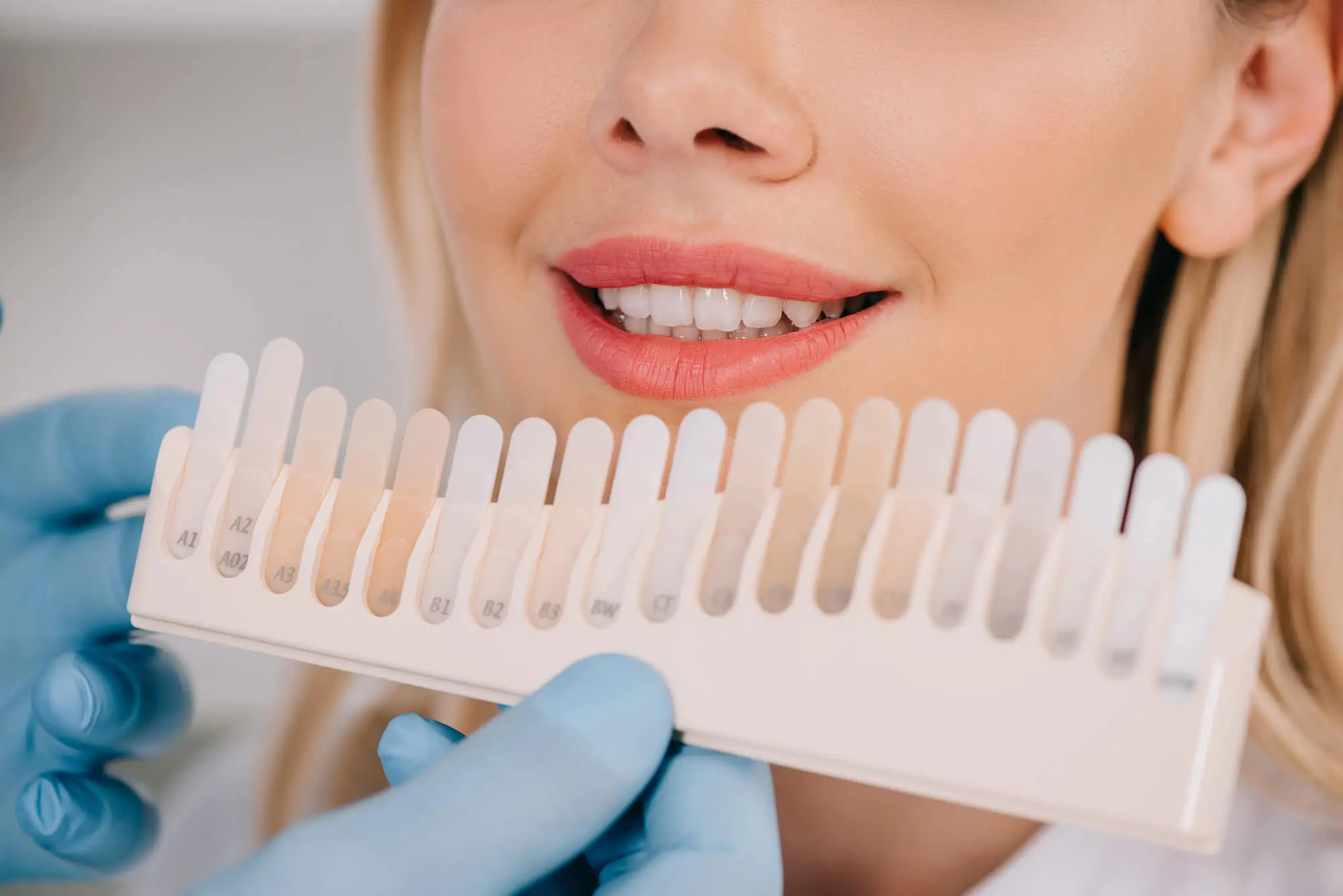Blog

Blog

Dental stains can be really frustrating, but they’re awfully common. From drinking coffee to eating heavily seasoned foods, many factors can cause dental staining. And while these dark spots are often harmless, they can affect your confidence in your smile, making you search for “teeth whitening near me.”
Of course, whitening treatments are a reliable solution to eliminating stains, but preventing them from happening in the first place is always more effective. To do so, you have to start by understanding which things in your routine are causing discoloration.

Tooth discoloration can occur for several reasons, but what all of these have in common is that they impact the tooth enamel and dentin. Dental enamel is the outermost layer of your teeth, and dentin is the softer inside. To understand how factors impact these two layers of your teeth, first we must explain the different types of dental stains.
Now that we know how intrinsic and extrinsic stains develop, what seemingly innocent daily practices cause these discolorations?
Coffee contains tannins, which are dark-colored compounds that stick to enamel and cause yellow or brown discoloration over time. Slowly sipping your coffee can be particularly damaging, as it gives the tannins plenty of time to settle.
To prevent that, dentists recommend drinking a single cup of coffee a day—no day-long sipping—and rinsing your mouth with water immediately after.
Like coffee, tea is high in tannins. Black tea is particularly staining, but even green and herbal teas can discolor teeth with regular use. To make matters worse, green tea may color your pearly whites with a greenish hue.
Red wine is acidic and full of chromogens (pigment-producing substances), which can quickly darken tooth enamel. Its acidity also softens enamel, making stains stick more easily.
Nicotine and tar in tobacco products cause persistent brown or yellow stains, especially on the front teeth. They also reduce saliva production, which makes it harder for your mouth to clean your teeth of these substances.
In the long run, smoking can also contribute to gum disease and enamel erosion, which is why dentists recommend quitting this habit.
Colas and dark sodas are highly acidic, which means they can erode and stain your dental enamel. Additionally, these drinks often have artificial colorings like caramel, which contribute to dental discoloration.
Blueberries, blackberries, pomegranates, and cherries are a healthy snack option, but they’re full of natural pigments that can stain teeth, especially when eaten often or in juice form.
To continue with this healthy habit while keeping your white smile, you can make sure to rinse your mouth with water immediately after eating them.
Tomatoes are acidic and pigmented. When made into sauces (like marinara), they can cling to and stain enamel. And because the acidity also increases enamel porosity, these spots tend to stick.

Stains are often caused by plaque accumulation. Infrequent or improper brushing and flossing allow bacteria to grow in the small spaces of your smile, which can gain a darkish hue. Regular dental cleanings help remove them—while keeping your grin healthy and free of tooth decay.
Some medications, like tetracycline and doxycycline can cause deep, intrinsic stains if taken during childhood. Others, like antihistamines, antipsychotics, or high blood pressure meds, can reduce saliva and increase staining risk in adults.
As we age, tooth enamel wears down, revealing more of the yellowish dentin beneath. This natural thinning makes teeth appear yellow or dull over time, even without external stains.
So, now you know what causes dental stains and how to prevent them—but is there a way to safely eliminate stains that have already set? That’s where laser teeth whitening comes in.
In laser teeth whitening, a bleach solution containing peroxide is applied to the teeth and activated by a laser. The gel targets stains or discoloration, giving you gorgeous white teeth.
Other teeth-whitening techniques may be harsh on your enamel, but laser teeth-whitening is gentle and yields amazing results. Moreover, the effect is long-lasting, staying bright anywhere from six months to a year
Sometimes, whitening procedures can’t eliminate stains, especially if they are old and intrinsic or if they affect the entire structure of your tooth. In these cases, we can cover the discoloration with porcelain veneers.
Porcelain veneers are thin, custom-made shells bonded to the front of teeth to improve their appearance. By covering any flaws, you can completely revitalize a tooth’s appearance and enhance your smile.
Nowadays, various over-the-counter whitening products promise to brighten your smile noticeably. If you’re frustrated with your looks, you may be tempted to try them, but it's better to avoid using these unsupervised.
Many at-home whitening products contain high concentrations of hydrogen peroxide or other bleaching agents. When used improperly or too frequently, these chemicals can weaken or erode enamel, the protective outer layer of your teeth. Once enamel is lost, it doesn’t grow back.
This can increase tooth sensitivity, especially if your teeth or gums are already sensitive, and may even cause chemical burns or gum irritation. While it’s tempting to go for cheaper, do-it-yourself solutions, professional whitening is more effective, tailored to your needs, and safer.

Worrying about the appearance of your smile is common, but when exploring solutions, caring for the health of your smile is important, too. At-home whitening treatments can be too harsh on your teeth’s enamel, causing sensitivity and leaving it more prone to tooth decay in the long run.
At Black Bear Dental, we understand the systemic link between your oral health and the state of your body, which is why we prioritize safe and holistic treatments. Call us today if you’d like to explore safe whitening options without harming your smile!
